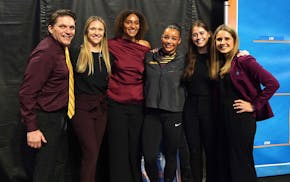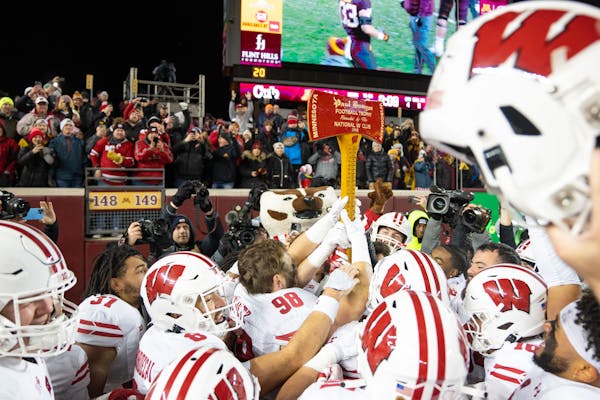Just like on the first Tuesday after the first Monday in November, the news poured in Saturday from locations across the country, with places like Lafayette, La.; Norfolk, Va.; Pasadena, Calif.; and, finally, Honolulu delivering their final totals.
No, it wasn't election night, but rather the final day of major college football's regular season. While the blue bloods jockeyed for conference title game and playoff berths, rank-and-file teams with five victories sought a sixth win to secure a trip to a bowl game.
That was the case Saturday for the Gophers, who lost 28-14 to Wisconsin at Huntington Bank Stadium and finished their regular season with a 5-7 record. Still, Minnesota had one more way to reach a bowl game, and that would play out into Sunday morning.
If there are not enough six-win teams to fill the 82 spots in the 41 bowl games, the NCAA will allow five-win teams with the best Academic Progress Rate scores to fill any open spots. This year, though, the NCAA allowed James Madison (11-1) and Jacksonville State (8-4) to bump ahead of any five-win teams because they are in transitionary years in the move from FCS to FBS.
The Gophers followed this route in 2015, when they finished 5-7 but advanced to the Quick Lane Bowl on the strength of their APR score.
Entering Saturday, 71 of the 82 bowl spots were filled (including James Madison and Jacksonville State), meaning no more than 10 teams could earn their sixth win in order for the Gophers to make a bowl.
Through the afternoon games, things were not looking good for Minnesota. Eight more teams had secured bowl eligibility, leaving the Gophers' elimination number at 3.
One key result for Minnesota was Syracuse's 35-31 win over Wake Forest, preventing the Demon Deacons from winning a fifth game. Wake owned the APR tiebreaker over the Gophers.
Three games that started at 6 or 6:30 p.m. involved five-win teams, and South Florida beat Charlotte 48-14 for its sixth victory.
That left a pair of late-night games in play, with 5-6 Cal at UCLA, and 5-6 Colorado State visiting Hawaii. If both the Golden Bears and Rams won, the Gophers would not go to a bowl.
When Cal dismantled UCLA 33-7, the Gophers suddenly needed underdog Hawaii to beat Colorado State.
The Rainbow Warriors led 24-10 early in the fourth quarter, and things were looking good for the Gophers. Instead, Colorado State chipped away, then tied the score 24-24 on a 70-yard touchdown pass on fourth-and-8 and subsequent two-point conversion with 54 seconds left.
Hawaii had one last shot, moving to the Rams 34-yard line with eight seconds remaining. The Warriors rushed their field-goal team onto the field and got the snap off just before time expired, with a hustling Matthew Shipley booting a 51-yarder to win the game 27-24.
The time was 1:26 a.m., and on the final second of the final game of college football's regular season, the Gophers were bowl-bound.
Before he knew that the Gophers would make a bowl, coach P.J. Fleck saluted the team's academic staff.
"I give credit to Jacki Lienesch and Robert Day, our entire academic advisers in our academic program," he said. "… When you get put in positions like this, the APR matters."
The question of which bowl will host the Gophers will be answered next Sunday. Going by record, the Quick Lane in Detroit is a possibility, though Minnesota played in that game in 2015 and 2018. The Las Vegas Bowl is a possibility, which would be more popular than Detroit. Another option: The Big Ten could make a trade with a nonaffiliated bowl and put the Gophers or others in such games.
Athletic director Mark Coyle said Saturday in a pregame interview on KFXN-FM that four or five destinations are possible.
"I can't tell you how important it is what our fans have done the past several years in buying tickets to bowl games," Coyle said. "It's huge for us. We have a great reputation that we travel now."
What moves should Minnesota United consider at next MLS trade deadline?
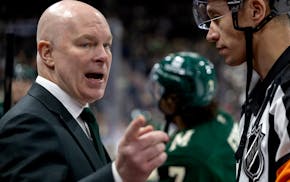
For Wild's leader, playoff time and payoff time arrive together
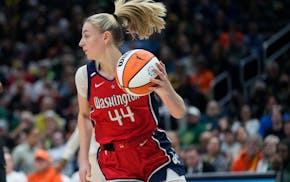
Samuelson finally gets Wi-Fi, finds out she's a member of the Lynx
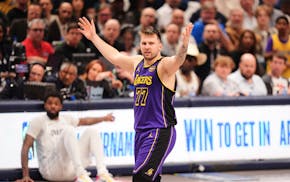
Souhan: Ant as the new Moss? Nope. The Lakers have that player
